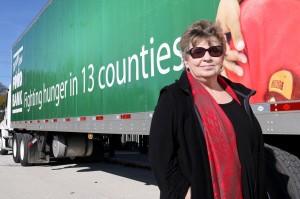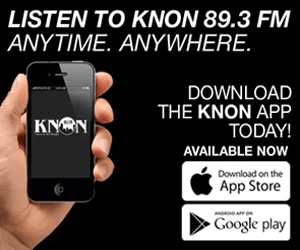Bordering Fort Worth’s food-deprived zones are supermarkets running surpluses of food. Much of that excess never reaches those who need it. According to the United Nations, the United States wastes 30 to 40 percent of food produced each year or the equivalent of $165 billion. The average American consumer wastes 10 times as much food as someone in Southeast Asia, according to the environmental nonprofit National Resources Defense Council.

Last month, Blue Zones directors invited city officials, Tarrant County Food Policy Council directors, and supermarket managers for the first Equitable Food System Summit. The idea was to start a dialogue that could lead to innovative ways to shore up food waste by delivering surpluses to underserved areas in Tarrant County.
“We’re really a convener” for many groups, said Blue Zones Vice-President of Government Relations, Suzanne Duda. “Food waste is a big challenge. Fort Worth has a great food bank that has identified many problems. Now we have a broad-based initiative that is focused on food policy.”
Mayor Betsy Price kicked off the event with a short speech and was followed by presentations from Sara Albert, who is an expert on food law, and Dana Frasz, a leader in the food recovery movement.
“Some [grocery stores] donate to the food bank, but a lot of them don’t,” said Brandy O’Quinn, Blue Zones’ manager of public relations.
The Food Bank already picks up surplus food from supermarkets to donate to the community, Ewen said, but any extra help is appreciated.
“We were very pleased with the level of engagement and participation in the Equitable Food Systems Summit,” Blue Zones’ Duda said. “The summit brought together grocery stores, food distributors, service providers, and local policymakers to discuss important issues related to … easy access to affordable fresh fruits and vegetables and other healthy food choices.”
In addition to that conference, Blue Zones is working on several initiatives aimed at loosening regulations over the sale of produce and encouraging entrepreneurship in parts of the city with low access to fresh foods.
While pushcart merchants are free to sell ice cream in Fort Worth, city ordinances do not allow that same platform to be used to sell fruits and vegetables. One Blue Zones committee is working to change that with a produce cart program that may one day change the neighborhood ice cream cart into a vegetable cart. Even if the restrictions are lifted, owners of the carts can face steep licensing fees. O’Quinn said city officials should lower startup fees to encourage private individuals to consider starting small produce-cart businesses.
Another Blue Zones committee is working on a project called Mobile Fresh Markets. The concept is similar to a food truck, but the mobile market would park near schools in food deserts and sell produce. Again, city regulations would need to be amended to allow for those vehicles to remain parked for extended periods of time or park on public land without requesting permission each time.
In an e-mail statement, Mayor Betsy Price said the city’s partnership with Blue Zones is part of a broader effort to create policies that allow greater access to fresh produce in underserved areas of Fort Worth.
“We’ve seen a lot of support, excitement, and engagement from local employers, restaurants, grocery stores, faith communities, schools, neighborhoods, and individuals,” she said.
Blue Zones’ remaining efforts involve community gardens and healthier corner stores. Fort Worth has dozens of the communal plots, but zoning in many areas restricts use on public land.
“We are working closely with city staff,” O’Quinn said.
Cutting through red tape is a slow process, she admitted. Many of the committees count city staffers as members. The next step will be to hold public meetings for stakeholder input. The first one is scheduled for January, 2016.
“The city is being cautious to make sure [these changes] don’t become a nuisance,” she said.
Small farmers may get a foot in the supermarket door if Blue Zones gets food hubs up and running. A kind of farmer co-op, a hub can be as simple as a website that allows smaller farmers to pool produce together to sell in bulk to chain stores.
Hynes, who serves on that committee, said hubs allow groups of farmers to reach markets they typically couldn’t alone, like schools and hospitals, in addition to supermarkets.
“If you’re a well-established farmer, you’re doing fine,” she said. “But newer farmers have a harder time.”
******












Keep up the important work for a healthier Fort Worth, Blue Zones!